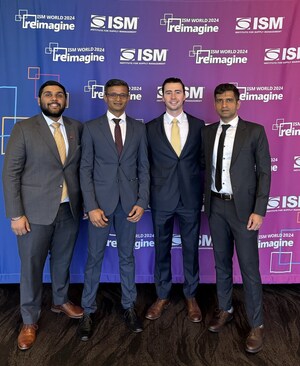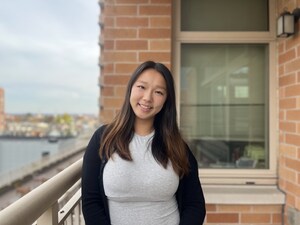Students get hands-on experience using advanced analytics software to collect data and perform analyses that are done routinely by accountants and auditors.
NEW BRUNSWICK, N.J., Feb. 16, 2024 /PRNewswire/ -- Professor Hussein Issa doesn't rely on textbooks. Instead he brings his expertise in emerging technologies to the accounting classes he teaches at Rutgers Business School. What's changed lately is those emerging technologies – artificial intelligence, data visualization, and robotic process automation, among them – have become increasingly more essential for students to know as they enter the accounting field or work to advance their careers in the industry.
Issa's Audit Analytics class for undergraduate accounting majors isn't the usual data analytics coursework. Students get hands-on experience using advanced analytics software to collect data and perform analyses that are done routinely by accountants and auditors.
"They are learning how to develop an analytics mindset – how to ask the right questions, find and prepare the data and how to interpret and communicate the results," Issa said. "It doesn't make them experts. The expectation is for them to understand how these technologies work."
Issa's work is an example of the practical expertise that has made Rutgers Business School's Continuous Auditing and Reporting Laboratory well known around the world. The laboratory, known as CarLab for short, is part of the Rutgers Accounting Research Center. Together, they are both a repository of knowledge and a resource for faculty, students, and companies.
This spring, the professor will introduce Chat GPT to his undergraduate classes as well. The idea is to demonstrate to the students where generative AI can assist them as well as the situations when they shouldn't rely on it. "If used properly," Issa said, "generative AI can empower them."
Issa also introduces graduate students to the analytics software and how it can be used. In the Doctoral of Business Administration Program, the subject is covered in Business Intelligence. Among the lessons is a case study on the use of AI and image recognition to perform tasks like inventory analysis. A course in Advanced Design and Development of Information Systems is offered as part of the Master of Governmental Accounting Program. It covers robotic process automation, visualization, data mining, artificial intelligence, and cybersecurity.
Issa believes his ability to incorporate his research makes the course work richer. "It enables me to communicate my own personal experience in the area and my own expertise," he said. "Many of the examples are real life examples. They are not mock exercises."
His research also continues to influence the industry. Late last year the California Society of CPAs informed him that it wanted to use a new paper he wrote on the use of robotic processes in auditing as part of a professional development program for industry professionals.
Rutgers faculty in the accounting and information systems department know that many accounting programs don't offer the same expertise. "We're struggling with the fact that accounting firms are hiring data scientists because accounting students (generally) lack data analytical skills," Issa explained. "We're trying to provide our students with an additional skill that makes them more marketable."
"I've been good with computers since I was a child," Issa said of his interest in the area. "I have an analytical mindset, and I like the use of technology. I'm a nerd."
SOURCE Rutgers Business School-Newark and New Brunswick

WANT YOUR COMPANY'S NEWS FEATURED ON PRNEWSWIRE.COM?
Newsrooms &
Influencers
Digital Media
Outlets
Journalists
Opted In






Share this article